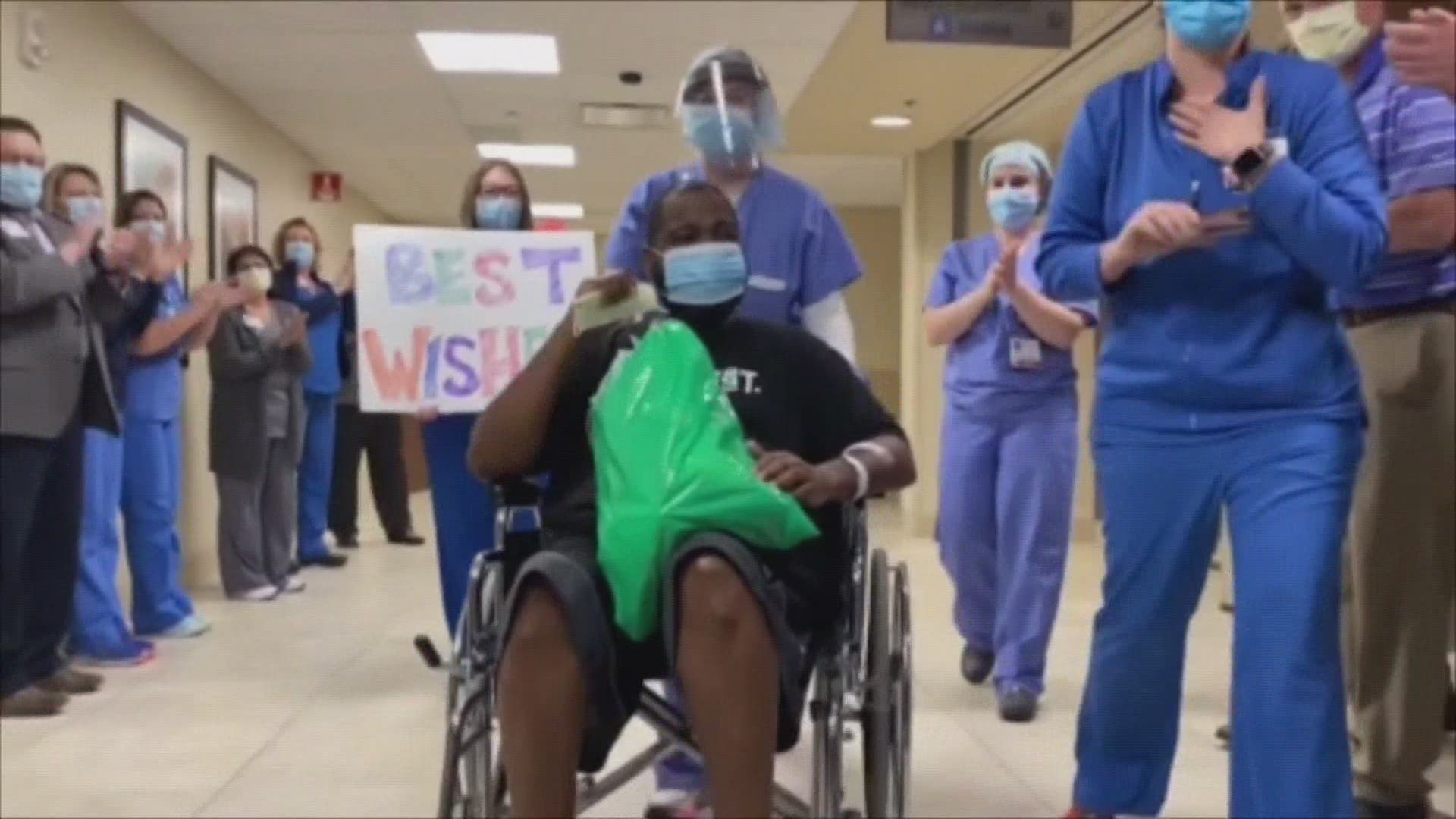A 37-year-old man who spent three weeks on life support after being placed into a medically-induced coma has recovered from COVID-19.
"It was really scary. I will tell you that,” said Christopher Marshall, a graduate student at the University of North Texas at Dallas.
He said it was a horrible experience and begs people to follow the social distancing guidelines and stay-at-home orders.
Marshall doesn't know how he contracted the disease. He thought he simply had bad allergies in early March.
But by mid-March, he had pneumonia in both lungs. He was tested for the flu and for strep but not for the novel coronavirus.
He got worse.
On March 26, his wife encouraged him to go to the emergency room. At first, he balked.
“I was afraid that we wouldn’t be able to afford it," Marshall said.
He tested positive for COVID-19. He was told he wasn't getting enough oxygen and would need to be intubated and put into a coma.
“On the outside I was calm but on the inside, I was very fearful because I’ve never been put to sleep like that before," Marshall said.
Doctors gave him hydroxychloroquine, which has helped some people recover, actually made him sicker.
"That medicine even though they are advocating it as the miracle drug that is not the miracle drug," Marshall said.
He says more testing needs to be done on the drug for COVID-19 use.
“From a person who almost died, I think there needs to be more facts behind using certain drugs," he said.
Marshall said his diabetes wasn't under control, weakening his immune system. When he didn’t improve he was airlifted from Methodist Hospital to Medical City in Plano.
Doctors there tried a more aggressive approach using an ECMO machine, which oxygenates a patient’s blood outside the body, allowing the heart and lungs to rest.
“It’s a very aggressive treatment they were doing because it’s like the last resort. If the ECMO treatment had not worked I would not be here right now," Marshall said.
Doctors also gave him fentanyl, a strong pain medication.
After nearly three weeks in a coma, Marshall finally woke up on March 31 – his birthday.
Marshall says when he woke up he couldn't believe the death toll he was seeing on TV.
"For the first couple of days I did have survivor remorse and I was like, 'Lord why me? Why did I live and all these other people pass away.'"
Marshall left the hospital on April 16. His wife waited for him outside. Doctors and staff cheered as he left.
But he's still recovering. He needs physical therapy to regain muscle strength. His energy level remains low.
“Still getting needles in me, labs checked," Marshall said. "You don’t want to go through this, being bedridden and have someone clean you.”
He can’t hug his family or kiss his wife. She too has tested positive for the coronavirus but has no symptoms.
“It’s weird being in the house with me but I can’t kiss her," Marshall said.
He still doesn’t know how he contracted the virus.
He lives and works in Dallas. He says he was doing everything that was required at the time which was to wash his hands and use hand sanitizer.
Stricter restrictions hadn't been put in place when Marshall got sick.
“I was riding public transportation. I wasn’t wearing a mask or gloves or anything like that and somehow I got it," he said.
He has a message for those who are tired of the strict government orders.
"Please stay home, stay home, stay home. This is real serious."

